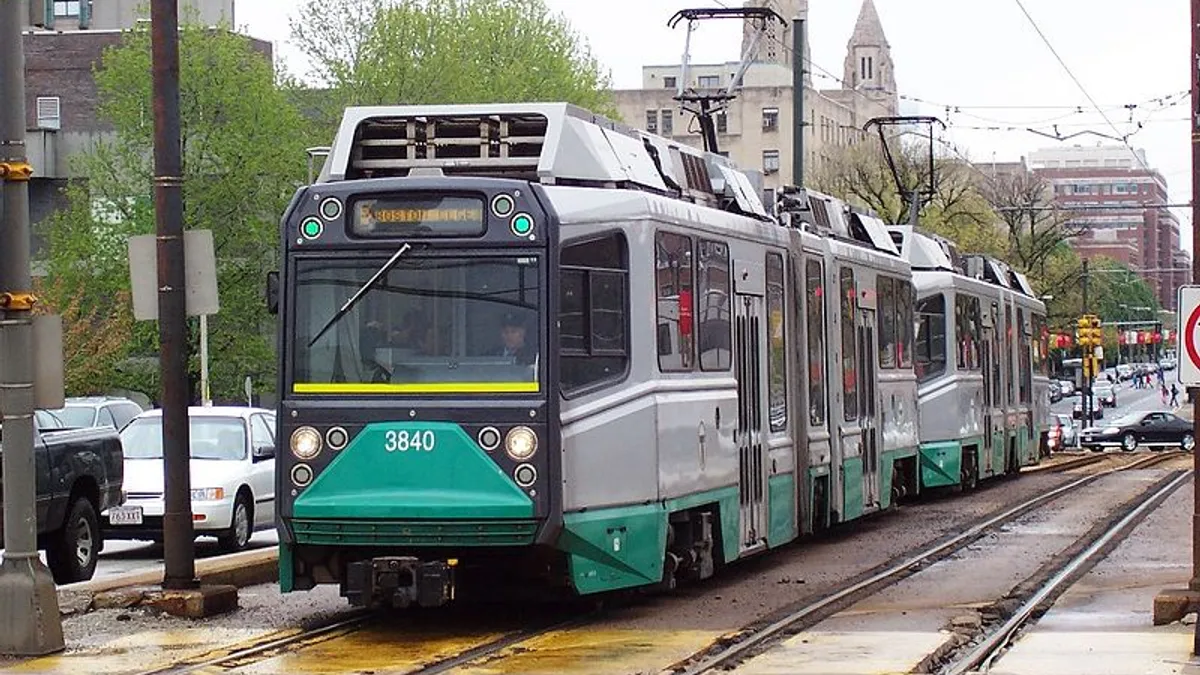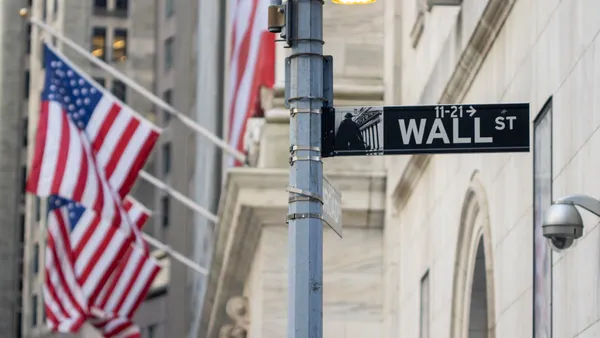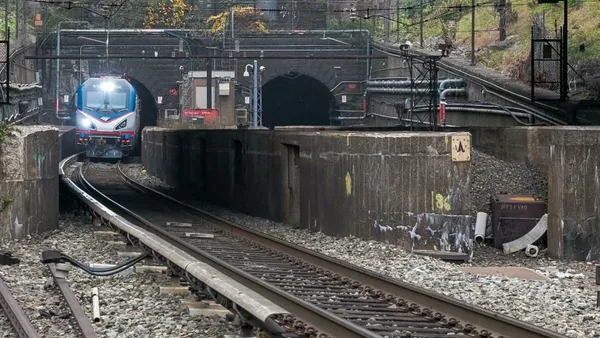Dive Brief:
- The beleaguered Boston Green Line light rail extension project, now at an estimated $3 billion price tag and $1 billion over the initial budget estimate, is on track to cost more per mile — $642 million — than any other Massachusetts Bay Transportation Authority rail project in the last 35 years, The Boston Globe reported.
- Similar rail projects, some even more complex, were all at least 20% cheaper, including inflation. Additionally, when comparing the Green Line to 17 comparable U.S. light rail projects completed between 1987 and 2005, the Green Line was also the most expensive per mile, with capital costs more than seven times higher than the average of the 17 projects, according to The Globe.
- MBTA officials hired outside consultants to try to come up with an explanation for the spiraling costs, The Globe reported, and they have narrowed down the possible causes to the burden of building in an urban environment next to working commuter rails, elaborate stations and maintenance facility, and a bungled contracting process. Critics have said the guaranteed maximum price contract allowed the primary contractor, White-Skanska-Kiewit, too much leeway with the project budget.
Dive Insight:
State officials are considering downsizing the project or even canceling it in the wake of the MBTA’s termination of all lead contractors, but officials say the state would lose $1 billion in federal funding and the economic growth from new businesses, housing and jobs related to the new line if they canceled the project, according to The Globe. The line would also serve approximately 45,000 riders a day, reducing traffic congestion and improving local air quality.
"It appears that the Green Line extension is grossly overpriced," Bradley H. Clarke, a transit historian and president of the Boston Street Railway Association, told The Globe. "It’s disproportionately high."
T general manager Frank DePaola told The Globe, "One of the reasons we put a halt on the project is we want to make sure we’re doing something that’s financially feasible and reasonable for us to advance."
The decision, however, might have been made for the MBTA because it is legally obligated to complete the project as recompense for the Big Dig’s environmental impact and as a result of a Conservation Law Foundation lawsuit.
"If they canceled, they would still have the obligation to produce a substitute project that produces the same air quality benefits, and it would have to be in the same area, roughly," Rafael Mares, a CLF vice president, told The Globe.
Most observers, however, say that the chances of the MBTA trying to scuttle the project entirely are slim, and last month, consultants urged the agency to rebid remaining work as a single package.
Other areas of the country have seen financial troubles with the construction of new rail systems. The Minnesota Metropolitan Council has also been plagued with increasing costs for its $1.5 billion, 13-mile light-rail extension line in Minneapolis. Costs there have risen nearly 50% since the original estimate.
In addition, the California High-Speed Rail Authority is grappling with its own transit controversy arising from the Los Angeles-San Francisco bullet train project. Critics say the authority’s costs estimates of $68 billion and aggressive completion schedule are unrealistic, and California Assemblyman Jim Patterson, along with other Republican legislators, called for an investigation following a Los Angeles Times investigation alleging that the authority withheld a critical cost report during the project’s approval process.













